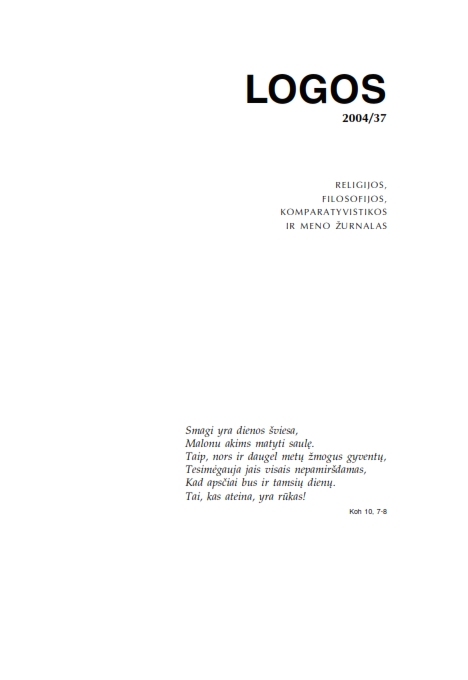Abstrakčiosios tapybos teorijos ir modernaus meno samprata
Theories of Abstract Painting and the Concept of Modern Art
Author(s): Kristina BudrytėSubject(s): Visual Arts, Aesthetics, Ontology
Published by: Visuomeninė organizacija »LOGOS«
Keywords: Abstract painting; modern art; Abstract Expressionism; action painting;
Summary/Abstract: This article considers some problems of theoretical interpretation, structural analysis and evaluation posed by specific examples of abstract art and explores some relations and differences between figurative and abstract forms of painting. Attention is paid to the historical context from the beginning of abstract art (Kandinsky, Malevich, etc) through its development (particularly Abstract Expressionism: Pollock, Rothko, Newmann, etc) to some philosophical tendencies and art theories of the 20th century. The dominant interpretation of abstract art is based on the premise that abstraction as an artistic movement is linked to modernism. The advent of postmodernism would therefore announce the end of abstraction, and an attempt has been made to push the understanding of abstraction beyond the ontological and transcendental realm where it has often been located. The article analyses philosophical tendencies which relate the emergence of new forms of art in Europe and the USA with abstract painting. Having reviewed theories of abstract painting, a definition of abstraction appears as one of the most radical transformations of modern art in the 20th century.
Journal: LOGOS - A Journal of Religion, Philosophy, Comparative Cultural Studies and Art
- Issue Year: 2004
- Issue No: 37
- Page Range: 170-178
- Page Count: 9
- Language: Lithuanian

